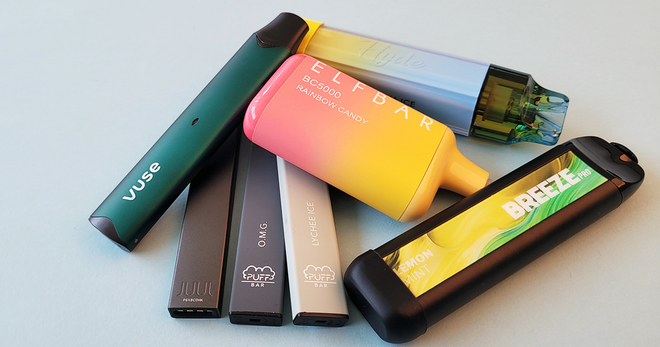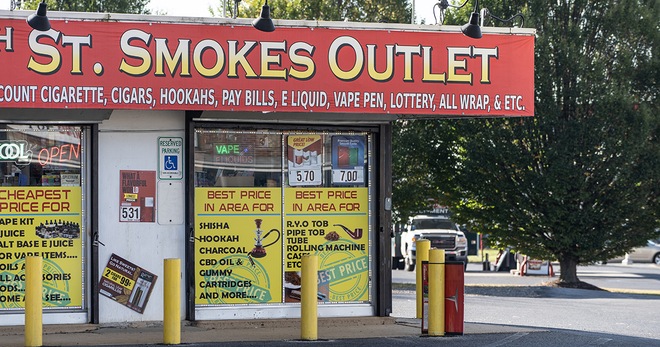How the tobacco industry is trying to infiltrate public health – and what we can do about it
As cigarette sales decline, the tobacco industry is trying to rehabilitate its image with non-combustible tobacco products and claims that it can be part of the “public health solution” to end smoking.
Tobacco companies are overtly co-opting the language and look of public health organizations to make claims about the health impact of e-cigarettes, heated tobacco, and nicotine products that are not supported by peer-reviewed research. Meanwhile, the industry also continues to market combustible cigarettes around the world, with trillions consumed each year.
Public health leaders and researchers joined Truth Initiative to discuss protecting the integrity of credible public health research at “Undermining Scientific Integrity: The Tobacco Industry’s Renewed Attack on Research and Reality,” the latest Truth Initiative Impact Series. Robin Koval, CEO and President of Truth Initiative; Dr. Barbara Schillo, Senior Vice President of the Truth Initiative Schroeder Institute; Dr. Robert Jackler, principal investigator of Stanford Research into the Impact of Tobacco Advertising; Pebbles Fagan, Director of the Center for the Study of Tobacco at the University of Arkansas for Medical Sciences; and Shawn Otto, author of The War on Science: Who’s Waging It, Why It Matters, What We Can Do About It. Ben Stockton, an investigative journalist at The Bureau of Investigative Journalism who has reported on the tobacco industry and global health, moderated.
Obscuring research
The tobacco industry’s efforts to insert themselves into scientific discourse are nothing new. The tobacco industry knowingly hid the truth about the impact of cigarettes for decades by spinning a narrative of doubt around the health risks of smoking, donating to politicians who would oppose greater regulations, and funding research designed to undercut objective scientific findings to protect profits.
“[The industry] creates ‘debate and controversy,’” said Dr. Jackler, “when there’s overwhelming scientific evidence independent from the industry that convincingly shows something that is adverse to the industry’s business interests.”
Phillip Morris International (PMI), a maker of Marlboro, funded in 2017 the Foundation for a Smoke-Free World which has since worked to infiltrate scientific spaces and shape public discourse. The foundation published articles in established research journals by evading conflict of interest policies or by obscuring their role in funding. In addition, the makers of the popular e-cigarette JUUL sponsored an entire special issue of the American Journal of Health Behavior to showcase their industry-funded research.
Allowing tobacco industry research in scientific publications and conferences has major consequences. It gives tobacco industry-sponsored research a false equivalence with independent, credible public health research, allowing them to showcase their work to federal regulators. Industry participation at academic conferences and other scientific arenas provides critical insight into tobacco control evidence and strategy, which the tobacco industry can then use to counter science-based policy initiatives.
Sponsoring content in national newspapers
Tobacco companies have also used major news outlets including The Wall Street Journal and Washington Post to makeover their corporate image, spending millions on ads designed to reposition them as aligned with public health even though many publishers have policies in place prohibiting tobacco-sponsored content, according to Truth Initiative research.
The study found that PMI and Altria, the makers of Marlboro, spent $11.72 million combined between January 2020 and August 2021 on corporate advertising concentrated in national newspapers including the Boston Globe, The Denver Post, The Washington Post, Politico, and The Wall Street Journal.
Spending is likely vastly understated since it doesn’t include all forms of advertising, including print “advertorials” – ads in the form of editorials that are strategically positioned next to reported content. For example, PMI’s vice president of strategic and scientific communications published an advertorial in The New York Times about “embracing science” and PMI’s CEO published a similar ad promoting inclusion and progress in the Wall Street Journal, both of which tout the company’s non-combustible products.
“The industry is responsible to its shareholders to increase its profits and they can only do that by addicting new consumers and keeping them addicted to sell more products,” said Dr. Schillo. “That’s the opposite of what public health wants to do.”
Co-opting “harm reduction” for business interests
The panelists discussed how the tobacco industry has seized upon the term “harm reduction” – the proven public health strategy of providing evidence-based, lower harm alternatives for those who do not quit harmful substances – as a proxy for a vision of a lightly regulated market in nicotine products that provides for continued and robust growth of nicotine as a commercial product.
“We know there is not one definition of ‘harm reduction,’ but I think we have allowed industry to define it for us,” said Dr. Fagan. “Harm reduction is an approach, not a product, and if you reduce the scope of harm reduction to products, it then just becomes about profits. For some reason we have accepted the industry’s definition and reduced it to products versus programs and policies that actually reduce the overall harm of tobacco to all population groups across the world.”
Using its political influence
The tobacco industry has spent decades doggedly using its political influence to protect its business interests, support policy makers that do its bidding, and block lawmakers and public health officials’ efforts to seek an end to the tobacco epidemic.
“Public health right now is in a political climate where we’re somewhat fighting an uphill battle,” said Otto, “because public health is about the common good and a lot of political messaging and identity and lifestyle messaging have been about the individual good. What we have to do is really focus on exposing the science, opening it up to people, so that they can form their own decisions and their own conclusions about what the evidence shows. To the extent that we can really lay the evidence out there rather than spoon-feeding conclusions to people, we’ll have more successful outcomes responding to these marketing efforts by industries.”
In 2021, Truth Initiative founded the Scientific Integrity Workgroup. Comprised of researchers, policymakers and thought leaders, the group aims to collaboratively protect and increase scientific integrity in research on commercial tobacco and nicotine products.
“I call upon all of us working to end the influence of the industry and the harm of their products to continue to educate and encourage our colleagues and all reputable organizations, especially those that shape public opinion and popular culture, not to provide a platform for industry spin and borrowed credibility at the expense of public health,” said Koval.
Truth Initiative’s Impact Series
The Truth Initiative Impact Series is a robust, recurring event that brings together key stakeholders and experts to engage in thought-provoking conversations about ways we can innovate and inspire action to achieve a culture where young people reject smoking, vaping, and nicotine. The goal of this thought leadership series is to convene diverse partners in tobacco control and other public health organizations, parents, teachers, and policy makers who can benefit from Truth Initiative’s work.
In case you missed it, watch our previous Impact Series events: “Nicotine Nation: How the Tobacco Industry May Be Addicting a New Generation and is Keeping Americans Hooked,” “Vaping: Know the Truth – Empowering Students with the Facts on E-cigarettes & Tools to Quit,” “Thrive: A Youth Mental-Health Summit,” “Unvaping America’s Youth,” and “Not Buying It: The Tobacco Industry’s Rebrand.”
More in tobacco industry marketing
Want support quitting? Join EX Program
By clicking JOIN, you agree to the Terms, Text Message Terms and Privacy Policy.
Msg&Data rates may apply; msgs are automated.


